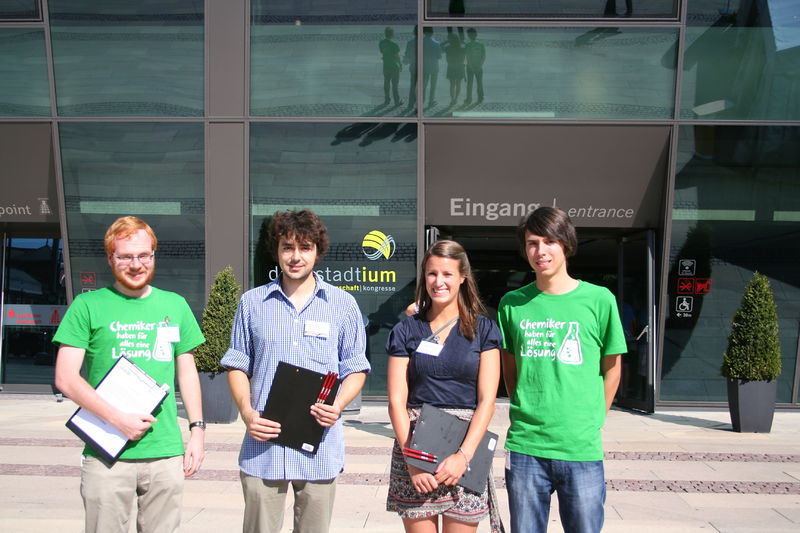Team:TU Darmstadt/humanpractice
From 2013.igem.org
| Line 180: | Line 180: | ||
The goal of our iGEM-Project is to develop a simple method for using genetically modified organisms (GMO) to detect dangerous mycotoxins in foods, that everybody can operate easily. In order to achieve this goal it is very important that the people who would use our device trust in the technology they are using and do not have any concerns regarding safety or reliability issues. | The goal of our iGEM-Project is to develop a simple method for using genetically modified organisms (GMO) to detect dangerous mycotoxins in foods, that everybody can operate easily. In order to achieve this goal it is very important that the people who would use our device trust in the technology they are using and do not have any concerns regarding safety or reliability issues. | ||
<br> | <br> | ||
| - | These concerns can be very serious and grave especially when the topics GMOs and food products come together. To improve our project we decided to evaluate the concerns the user might have with our detection method and try to incorporate their suggestions into the development of our device and strategy. | + | These concerns can be very serious and grave especially <img src="/wiki/images/thumb/2/2a/Humanpractice_outdoor1.JPG/800px-Humanpractice_outdoor1.JPG" alt="human practice 1" style="float:right; margin:20px;" width="345.6" height="230.4"> when the topics GMOs and food products come together. To improve our project we decided to evaluate the concerns the user might have with our detection method and try to incorporate their suggestions into the development of our device and strategy. |
| - | Our plan is to do this in a two-part public-opinion poll. With the first survey we want to gather the people`s attitude about biotechnology and GMOs in general and their views and concerns | + | Our plan is to do this in a two-part public-opinion poll. With the first survey we want to gather the people`s attitude about biotechnology and GMOs in general and their views and concerns of our detection system. After the gained information is integrated into the development process a second survey determines if the precautions and adjustments we incorporated are enough to maybe resolve some of the existing concerns and increase the chances of our project to reach it’s goal. |
<br> | <br> | ||
To come to know the opinion of a large crowd of people differing in age, education, origin, gender and attitude towards genetic engineering, we did not focus on a specific audience. To ensure that variability in our audience we addressed them in two different ways. On the one hand we published our questionary online via different social media and thereby we addressed people anonymous. On the other hand we asked the audience personal and we had the possibility to explain upcoming questions. Furthermore, in this way it was more easy to get to know the opinion of older people because the most of the people we are addressing online are our age. | To come to know the opinion of a large crowd of people differing in age, education, origin, gender and attitude towards genetic engineering, we did not focus on a specific audience. To ensure that variability in our audience we addressed them in two different ways. On the one hand we published our questionary online via different social media and thereby we addressed people anonymous. On the other hand we asked the audience personal and we had the possibility to explain upcoming questions. Furthermore, in this way it was more easy to get to know the opinion of older people because the most of the people we are addressing online are our age. | ||
Revision as of 00:53, 4 October 2013
Idea
The goal of our iGEM-Project is to develop a simple method for using genetically modified organisms (GMO) to detect dangerous mycotoxins in foods, that everybody can operate easily. In order to achieve this goal it is very important that the people who would use our device trust in the technology they are using and do not have any concerns regarding safety or reliability issues.
These concerns can be very serious and grave especially 
To come to know the opinion of a large crowd of people differing in age, education, origin, gender and attitude towards genetic engineering, we did not focus on a specific audience. To ensure that variability in our audience we addressed them in two different ways. On the one hand we published our questionary online via different social media and thereby we addressed people anonymous. On the other hand we asked the audience personal and we had the possibility to explain upcoming questions. Furthermore, in this way it was more easy to get to know the opinion of older people because the most of the people we are addressing online are our age.
 "
"